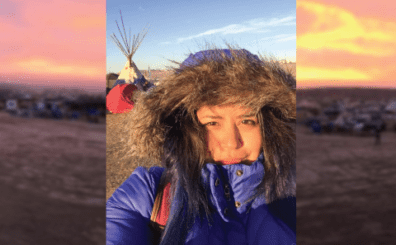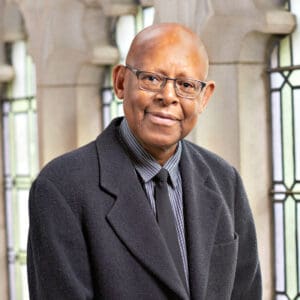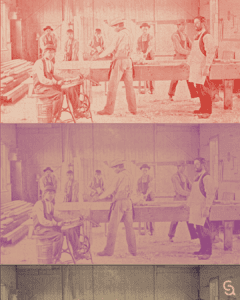
My entire life has been an exercise in chasing after the fulfillment of being known.
I was born in Caracas, Venezuela but have lived in the Latin diaspora since I was three years old. I have never returned home.
I do not know my people, my language, or my birth family.
I’m exhausted from chasing what I imagine is the most gratifying feeling an individual can experience. The feeling that they are seen, known, desired, AND loved, but, most importantly, that it is all an unshakeable constant.
Absent birth parents, orphanages, abusive adoptive parents, countless group homes, unfaithful fiancés, and broken friendships have worked to confirm for me the worst lies we can tell ourselves when we are alone: nothing is constant, I belong to no one, and no one belongs to me.
This is why I am so preoccupied with ensuring that everyone around me sees me as indispensable. Because even if you do not love me, I can make sure you need me. I depend upon all the talents and skills I’ve worked to master to ensure that I am vital to others. It’s terrifying to enter an environment where those skills do not matter and where I simply have to say, “This is me. Receive me and love me. Or not.”
Standing Rock was such an environment.
This is why I am so preoccupied with ensuring that everyone around me sees me as indispensable. Because even if you do not love me, I can make sure you need me.
I spent three and half weeks in November living at the California/Hoopa camp, a small community within the Oceti Sakowin camp, alongside thousands of other water protectors.
I was drawn to their beautiful display of resistance and went to be of whatever service I could, but I couldn’t have conceived of what Standing Rock would come to mean to me. It did not matter if it was a night spent being assaulted by tear gas or a day spent cooking food for the hundreds of people looking for a meal to fortify their body and spirit—everything I experienced at the camp was transformative.
My professional identity had nothing to do with how I could serve and love those fighting for their sovereignty and our planet. Oceti was a healing space. It fed my spirit in ways I didn’t know were needed, and I am indebted to the people there whom the Creator used to provide that healing.
For me, part of seeking to be known has been struggling to know myself.
I’ve been Hispanic, then Mestizo, then Latinx, and now I’m in a season of knowing myself as Indo-Latinx. The last three years, in particular, have been defined by decolonization—the decolonization of my mind, my body, and my faith. Every day is a commitment to exploring my own indigeneity and learning what it means to be a displaced Indigenous/Latinx Christian woman of color from South America.
The two most persistent questions I received during my time at Standing Rock, and since my return, have been, “What was the most impactful experience at the camp?” and “How can you be an Indigenous woman of color AND practice [the colonizer’s religion] Christianity?”
To the first question: Being known. That was the most impactful experience. Even weeks later I am trying to cling to the memory, the feeling, of how beautiful it was to be known.
In this case, it was my identity as an Indigenous woman.
I am deeply opposed to policing the racial/ethnic identity of others and, in my professional capacity, I would certainly counsel people to be wary of allowing someone else to determine the legitimacy of their identity. This sort of policing is so often toxic and painful (For example, words like: “But you don’t look…,” “but you don’t speak…,” “but you’re not from….,” etc.).
Still, at Oceti I experienced how powerful it is to feel received by others with whom you share a kinship. I didn’t realize how much I needed that.
The simple act of another native person looking at me with a knowing smile and uttering, “You’re native, right?” Or telling native people that I am from Venezuela but do not know who my people are or what tribes my lineage comes from—and having them still accept me as native without skipping a beat.
I cannot adequately explain the power in those moments. They were a gift.
My time among the water protectors reaffirmed my faith.
Oceti Sakowin, despite the myths of violence and disorder I’ve seen repeated in media, was a truly diverse place of prayer and ceremony. It permeated everything we said and did.
In all my years as a Christian community organizer I have never seen so many people from all walks of life and all corners of the earth come together in shared purpose. I have never seen prayer centered in the work of justice in such an intentional and inescapable way. We rose with the sun to the sounds of prayer, we tended to sacred fires that were never permitted to go out, and we spoke of every act we performed as an act of love that must offer good medicine and healing to be of worth.
In all my years as a Christian community organizer I have never seen so many people from all walks of life and all corners of the earth come together in shared purpose.
In all of it, for me as a Christian, was a lesson of what it to truly means to “rejoice always, pray continually, give thanks in all circumstances.”
While my indigeneity was never questioned, my faith certainly raised some eyebrows.
I heard the inquiries from native and non-native people alike: “How can you be an Indigenous woman of color AND practice Christianity?”
I am by no means a theologian, at least not beyond the necessity of unpacking one’s theology as a means of survival. It can be unbearable to be a Christian woman of color in spaces that so often practice White supremacy as Christianity. Erasure, assimilation as a prerequisite for acceptance, and covert (and overt) acts of violence make walking away a not-infrequent thought. I have to work very hard to separate the Creator from the acts of Her creation.
Like so many things that first belonged to People of Color and marginalized ethnic peoples, Christianity has been usurped and absorbed into Whiteness.
Christianity is, and has been for centuries, a weapon of colonizers; used to control and harm the disempowered.
What I hold to is the roots of my faith. When I strip away the false narrative that Jesus is a White Savior or that the Christian God is a White man’s God, I am able to see myself in my faith. It is what brings me back time after time.
I think of the words my friend Thomas H. Joseph II, a leader at Oceti Sakowin said, “When I read that letter [Army Corps eviction notice] it really struck me in my DNA. I was angry. This isn’t the first time our people have been told to go back to the reservation. This isn’t the first time the US army has threatened our people with violence.”
People of color carry a legacy of resistance in their DNA. Our very existence is a testimony to the strength of our ancestors. Across the many manifestations of what it is to be people of color, we see stories of enslavement, genocide, displacement, forced assimilation, and colonization.
How could I not be drawn to a faith birthed among the Israelites, an indigenous people who endured so much of the same? My Creator is their Creator. We share a Savior, a displaced and despised Man of Color, who spoke truth to power and was murdered at the hands of the state. It is heartbreakingly easy to see my story and the stories of my people echoed in that.
I am a Christian because I am unwilling to lose one more thing to White supremacy.
I will not give up my God, who saw to it that our legacy of resistance would be reflected in the story of creation and salvation.
I won’t give up my God who offers me a way to be known.
Learn more about the Oceti Sakowin camp.
The water protectors are persevering through brutal winter conditions. Help them as they work to protect our source of life. Stand with Standing Rock by supporting the Medic and Healer Council that cares for the mental and physical well being of all those at camp. Donate here.
This article was originally published by Believe Out Loud and appears here by kind permission of the author.
AnaYelsi Velasco Sanchez is an Indo-Latinx interlocking mujerista living in the Latin diaspora. She previously worked for The Reformation Project (TRP) as their Organizing and Programs Director and also running the organization’s Academy for Racial Justice. A graduate of The DART Organizer’s Institute, AnaYelsi is an inter-faith community organizer specifically trained to bring people together across racial, religious, and socioeconomic lines to pursue justice in their communities. An artist and writer, she is the creator of Secret Lives of Feministas, an online community addressing the marginalization of Latinx feminists in mainstream feminism. You can follow her on twitter at @brwneyedamzn.


